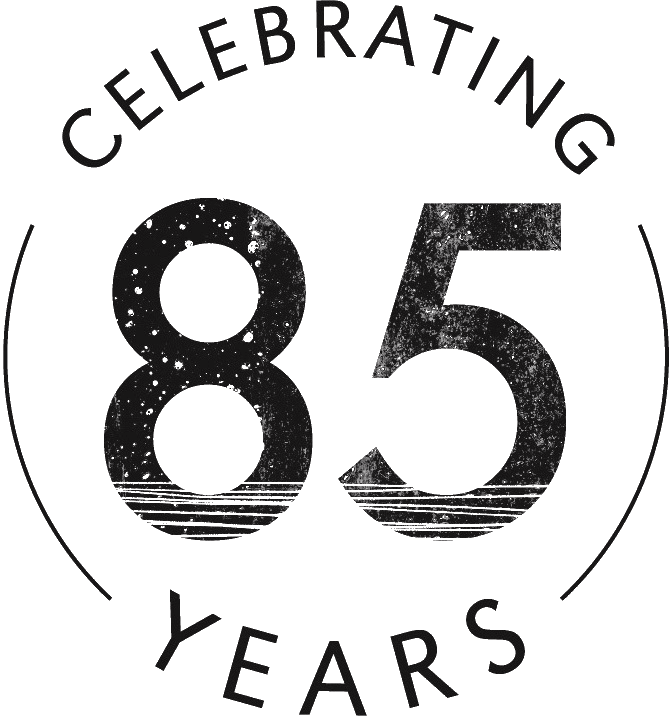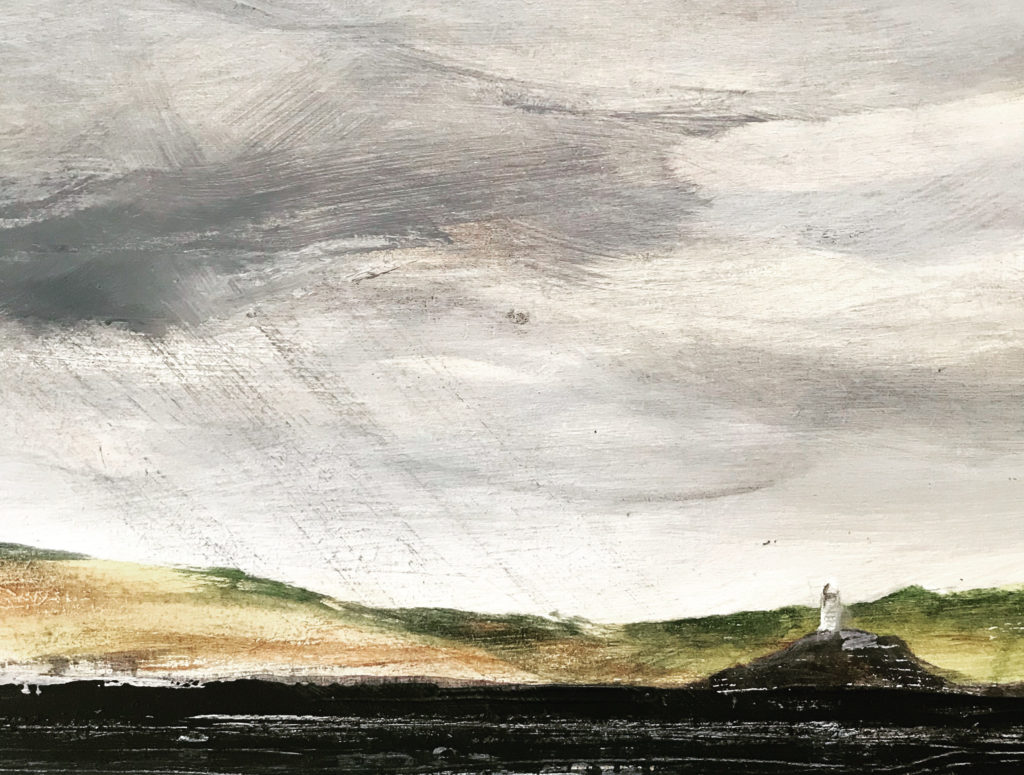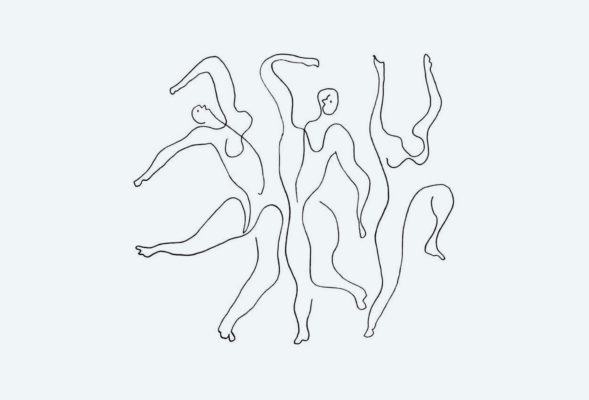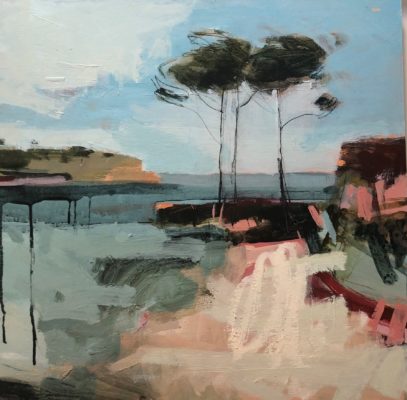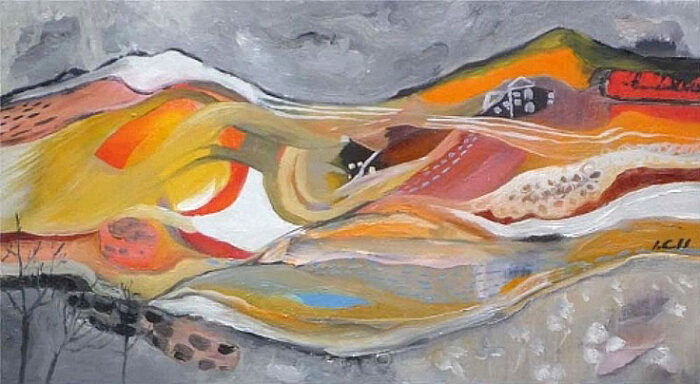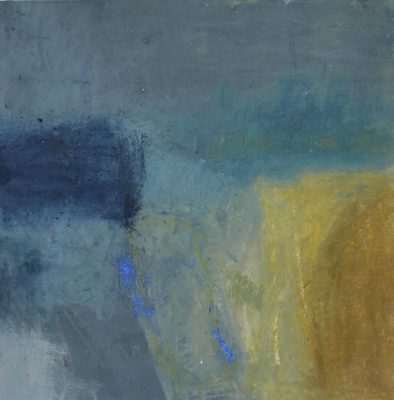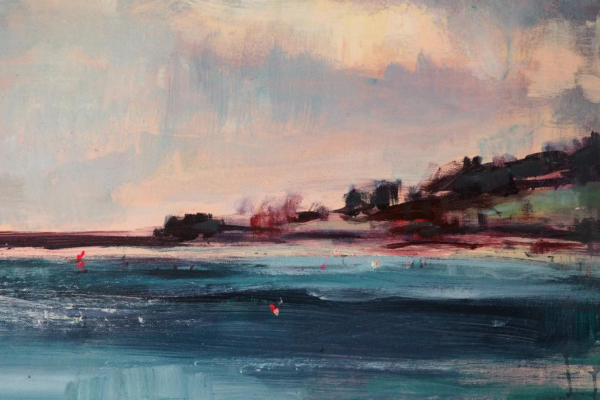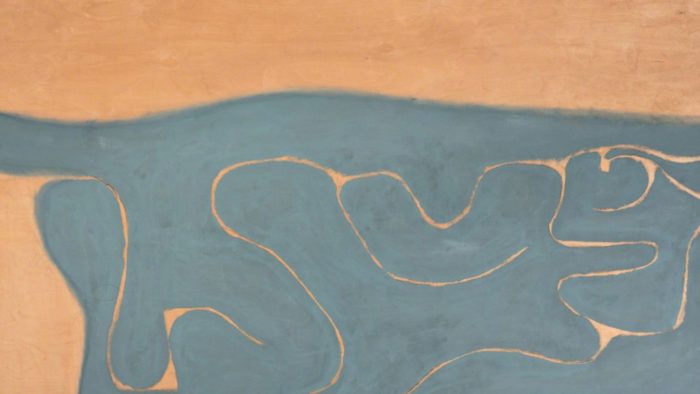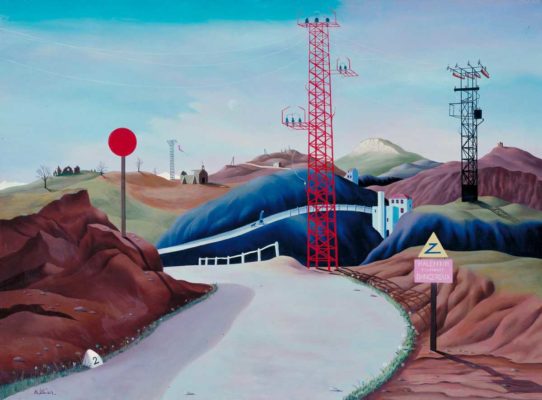This website uses cookies so that we can provide you with the best user experience possible. Cookie information is stored in your browser and performs functions such as recognising you when you return to our website and helping our team to understand which sections of the website you find most interesting and useful.
Course details
Take a step beyond the visual with instinctive drawing and painting exercises on the beautiful beaches and cliffs outside our studio and create artwork that powerfully connects with the coastal elements.
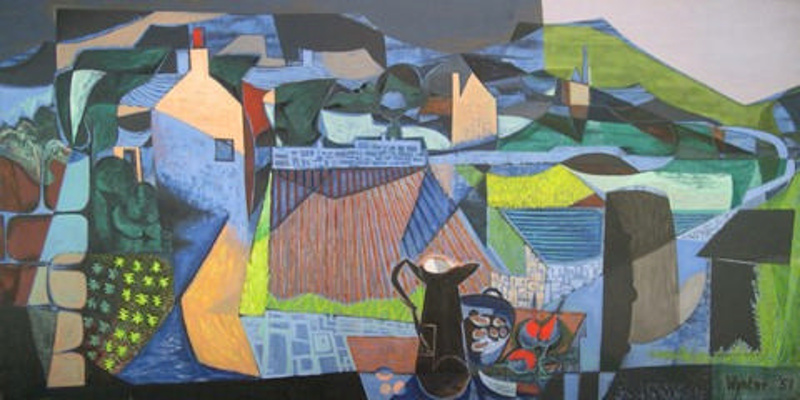
Inspired by the likes of JMW Turner and other influential painters captivated by the St Ives coastline, environmental artist Greg Humphries offers his unique multisensory approach to gathering information in situ. Amass a wealth of source material that is quite unlike any you’ve used before, revealing a more holistic interpretation of your environment.
Back in our St Ives studio, Greg will guide you through processes, both technical and intuitive, that evolve your collected sensory fragments into thoughtful, balanced paintings. These multidimensional pieces create a connection to place that resonates on a deeper level than images based on sight observation alone.
During the course you’ll look at Cornwall artist Bryan Wynter’s ‘reformed’ landscapes, inspired by the natural forces of the Cornish coast – particularly the sea against the rocks – which his painting invests with emotional significance.
This is an opportunity to loosen up your approach to landscape and integrate abstract elements.
Day to day plan
This is a rough indication of what to expect over the course. However sometimes the structure of the days may alter depending on the nature of the group and weather.
Day 1
Explore the dramatic St Ives landscape with watercolour and charcoal techniques used by JMW Turner. Then move away from the visual to examine some key ideas of abstraction as deployed by St Ives artists Peter Lanyon and Wilhelmina Barns-Graham. After spending the morning making sketches and notes out in the landscape, you’ll develop these back in the studio using mixed media techniques and acrylics.
Day 2
Out in the landscape, explore ideas and techniques of chance and improvisation by focusing on the work of Cornish Artist Bryan Wynter and his use of ‘natural processes’. Use gouache paint, ink and graphite to interact with the landscape and collect imagery which is then developed into ‘transformed landscapes’ both outdoors and in the studio.
Day 3
For the final day of the course, choose one of the approaches from the previous days to develop your own response to the wild beauty of the Cornish coastal landscape, with one-on-one guidance from your tutor.
What will I learn?
- Insight into innovative multi sensory approaches to working with landscape.
- Knowledge of the great painters that have lived and worked in St Ives and their processes of collecting and developing their creative influences.
- Confidence in using a variety of media to evolve your response to your surroundings into paintings.
- Confidence in approaching abstraction and integrating elements of it into your painting process.
- One-on-one tutorial advice from an experienced environmental artist.
Who would this course suit?
This course is ideal for artists of any level that would like to connect on a deeper level with their surroundings. Whether you’re a beginner or have a little more experience, the course exposes you to techniques used by some of St Ives’ most successful and influential painters. A multi sensory approach will help you to integrate abstract elements into your painting that feel instinctive and familiar. Some of the activities involve walking over rough ground and time spent working outside.
Taught by
What to Bring
Our studios are fully equipped and we provide you with all the materials you need for your course. However, if you have a favourite set of brushes or any specialist materials that you would prefer to use, please bring them with you.
Our studios are fully equipped and we provide you with all the materials you need for your course. However, if you have a favourite set of brushes or any specialist materials that you would prefer to use, please bring them with you.
Timings and Breaks
Registration on your first day is between 9.30 am and 9.50 am where you can sign in and enjoy a cup of tea or coffee on arrival.
The course starts at 10 am on the first day and 9.30 am thereafter, finishing at 3.30 on Sunday, with a short lunch break to try and enable everyone to get home that day. There are plenty of nearby places to eat or you are welcome to bring a packed lunch into the studio. Tea and coffee is provided throughout. Occasionally these times may be changed if required by the tutor.
FAQs
Studio Courses
How can I get help in choosing a course?
Our friendly expert staff are always happy to discuss your needs and our courses in more detail to help you with your decision. Please call us on 01736 797180
How do I get my work home?
Tutors have special techniques for transporting oil paintings and the school has plastic folders available in our shop for £3.50 or do bring a portfolio.
For international students we are happy to arrange transportation of your work back home.
What do I need to bring?
Absolutely nothing! All materials and aprons are provided although some people do like to bring their own set of brushes.
What do I do for lunch?
Courses allow an hour’s break for lunch and there are numerous places nearby or you are welcome to bring a packed lunch into the studio.
What times do courses run?
Most of our courses start at 10am and end at 4.30pm on the first day. Subsequent days we start at 9.30am ending at 4pm.
Weekend Courses run 10am – 4pm on the first day but the final day starts at 9.30 and ends at 3.30 with a short lunch break to enable people to get home that evening.
Do you have to be experienced to come to the School?
The School is a very friendly and welcoming place for all ages and experience. Our drop-in life classes and August half-day workshops are ideal for those wanting to have a go for the first time. Most of our longer courses are also fine for novices.
If any of the courses do need a bit of experience we flag this up in the brochure and on the website.
Booking a Course
How can I reserve a place?
We will hold a provisional reservation for 24 hours if you give us a call whilst you find accommodation. Otherwise please book online or by telephone 01736 797180.
You can reserve a place with a £100 deposit; balance is due 12 weeks before course start date.
About St Ives
Where do I park?
The nearest long stay public car parks are the Island and Barnoon Long Stay Car Park, both a 5 minute walk away. In the peak summer months it may be easier to park at Trenwith Car Park by the leisure centre and walk down into town. If you don’t fancy the walk up the hill at the end of the day there is a shuttle bus which runs from outside the cinema.
How do I get there?
Public Transport: If you are coming from further afield the main train line runs into St Erth which is a 15 min taxi ride away or you can take the St Ives Bay Line which runs approx. every 30 minutes. The School is a 10 minute walk from St Ives station.
Driving: M5 will take you to Exeter where we recommend that you take the A30 across Bodmin Moor and into Cornwall. After passing Hayle, leave the A30 at St Erth roundabout for St Ives. Turn right at the second roundabout. This road will take you through Lelant and Carbis Bay into St Ives.
Where can I stay?
St Ives has a huge selection of hotels, guest houses and self catering accommodation to choose from. Please browse the art holidays St Ives section on our website and give us a call if you would like any help.
